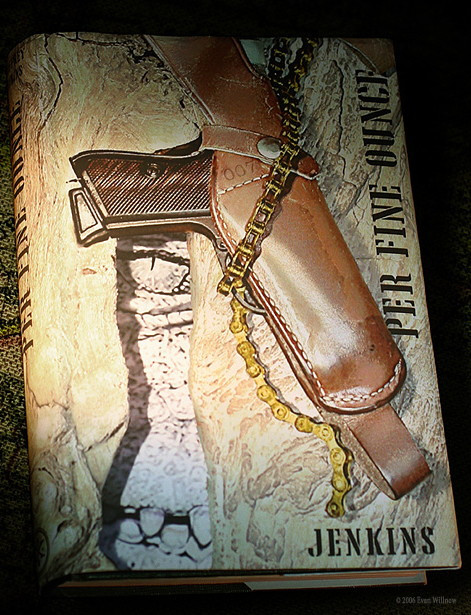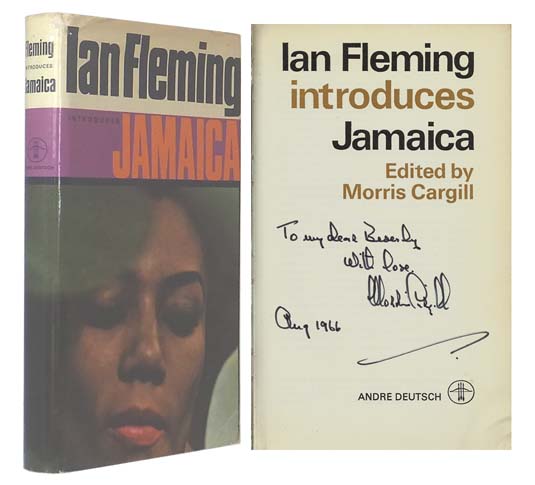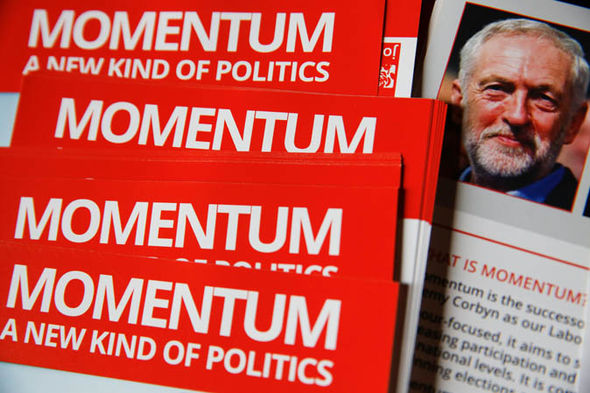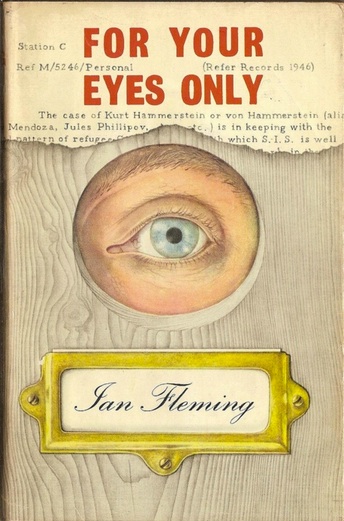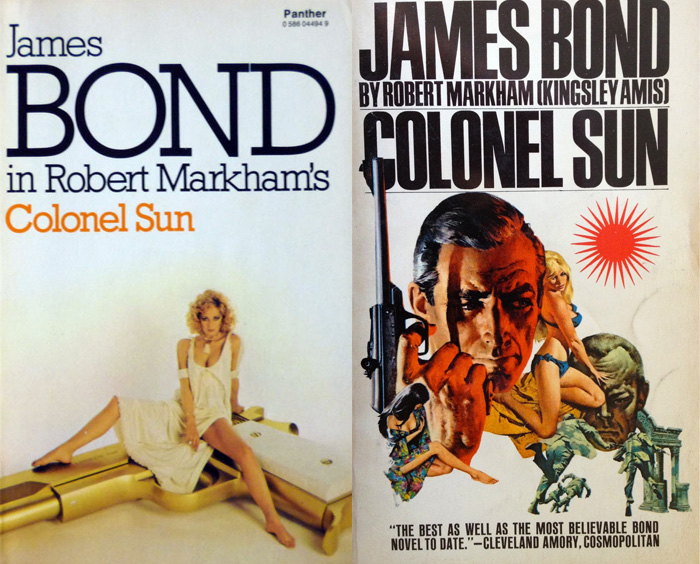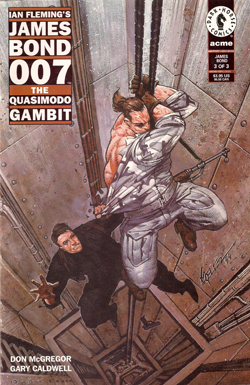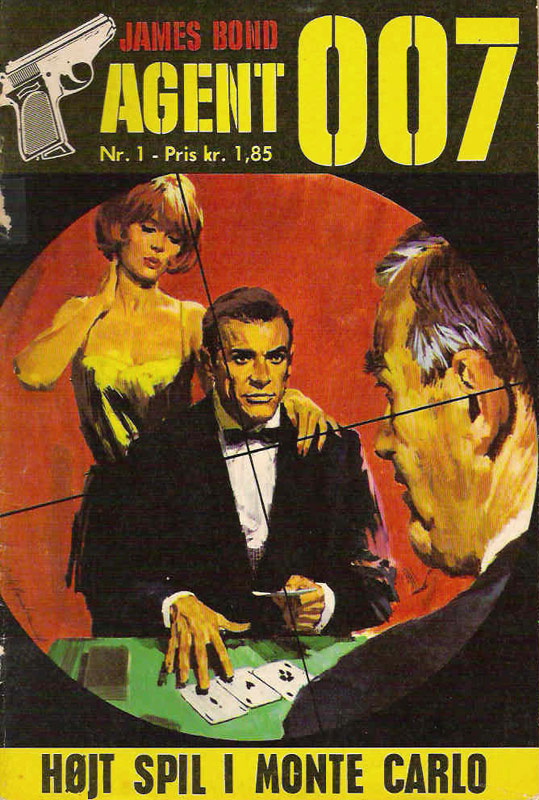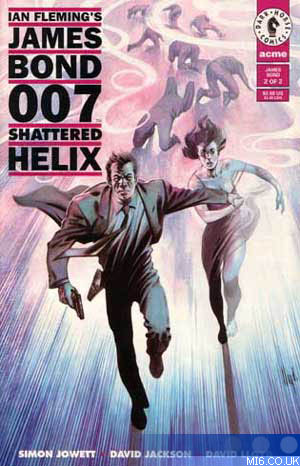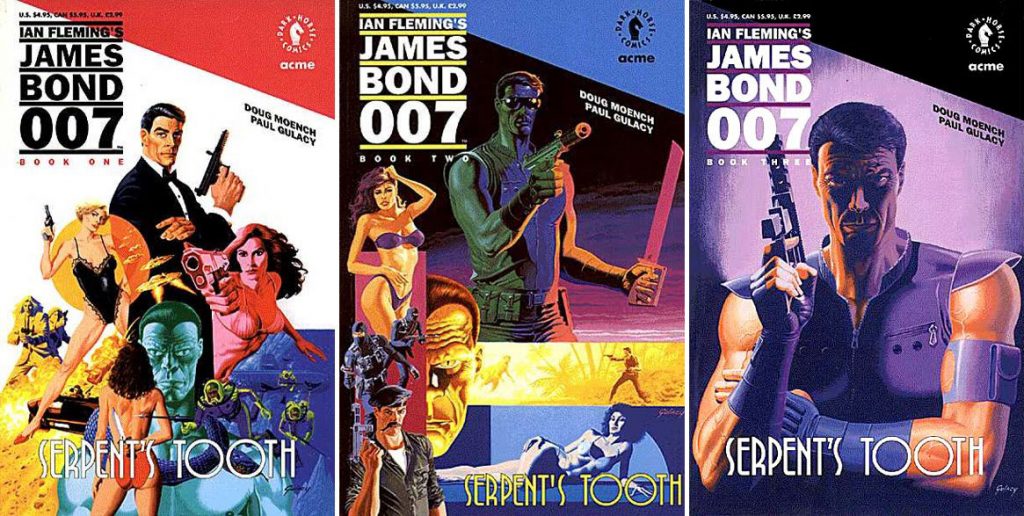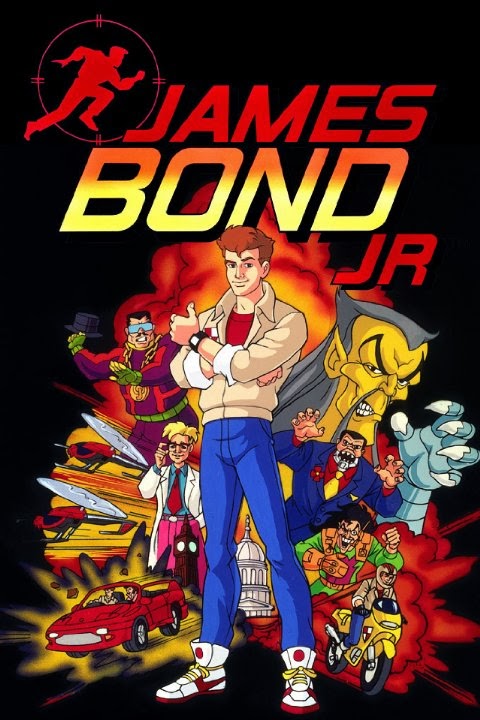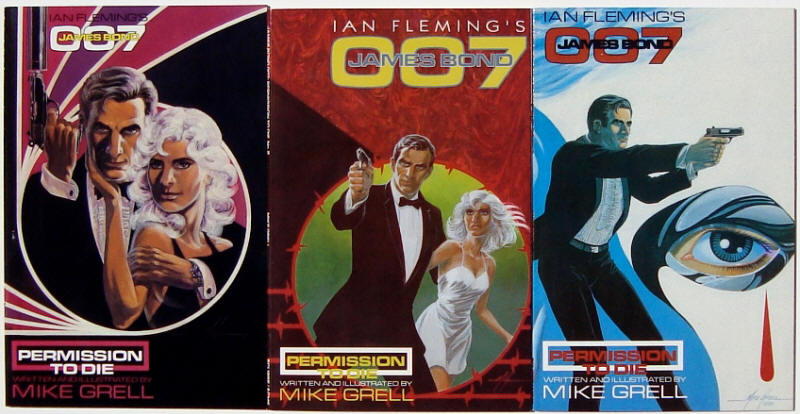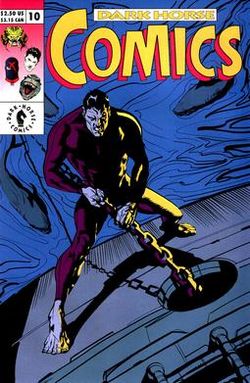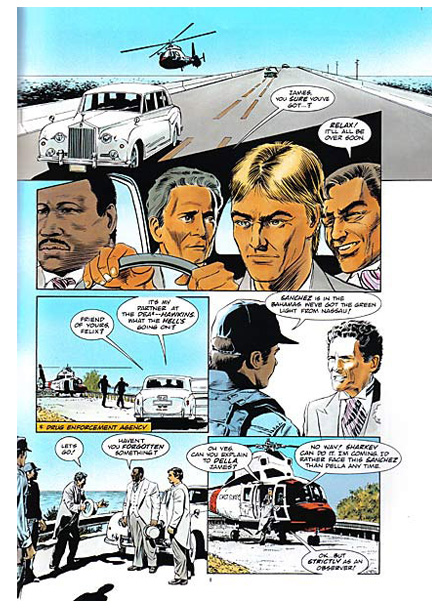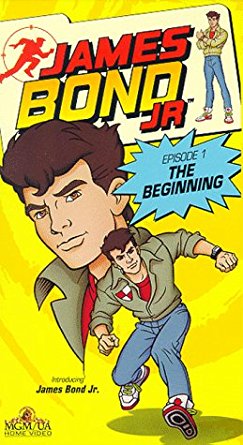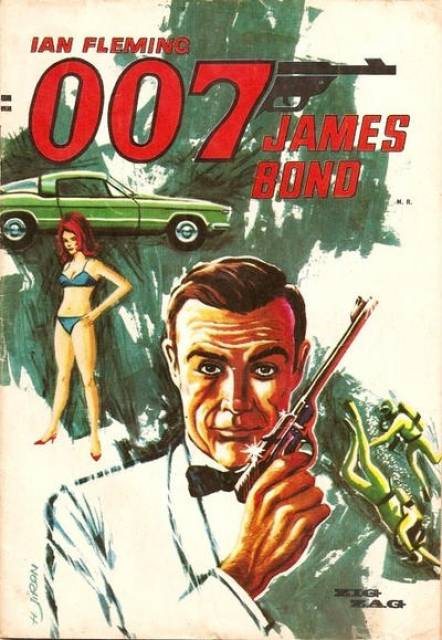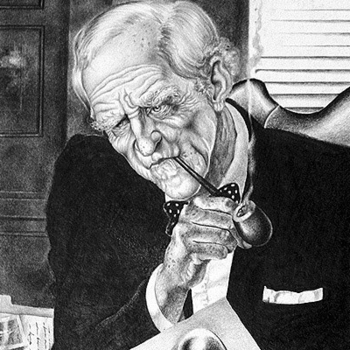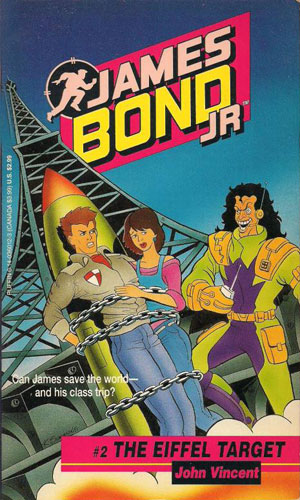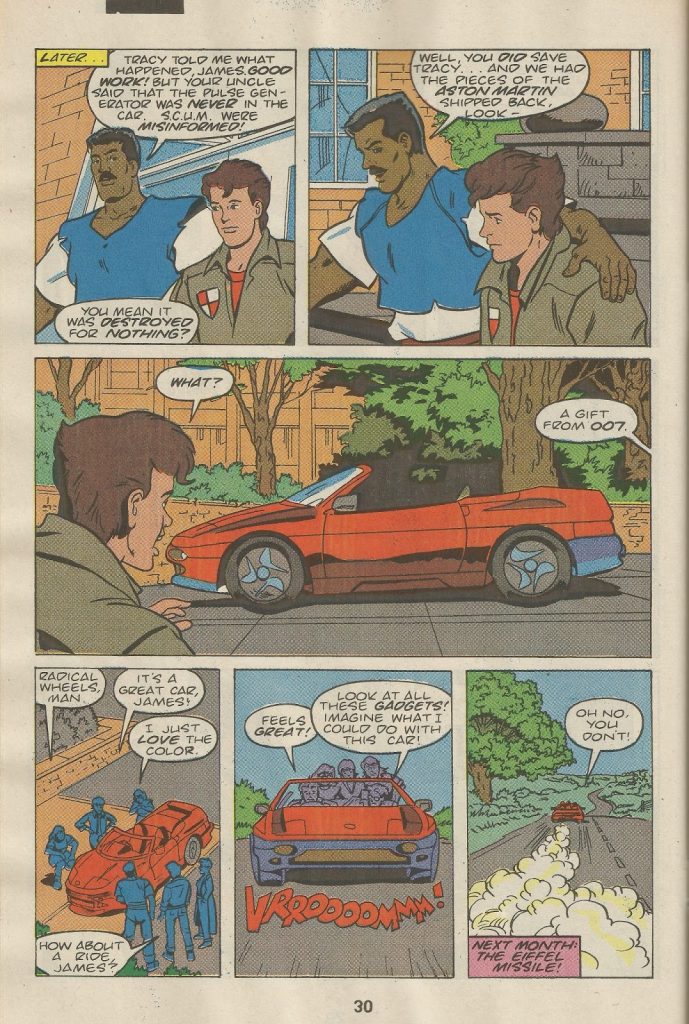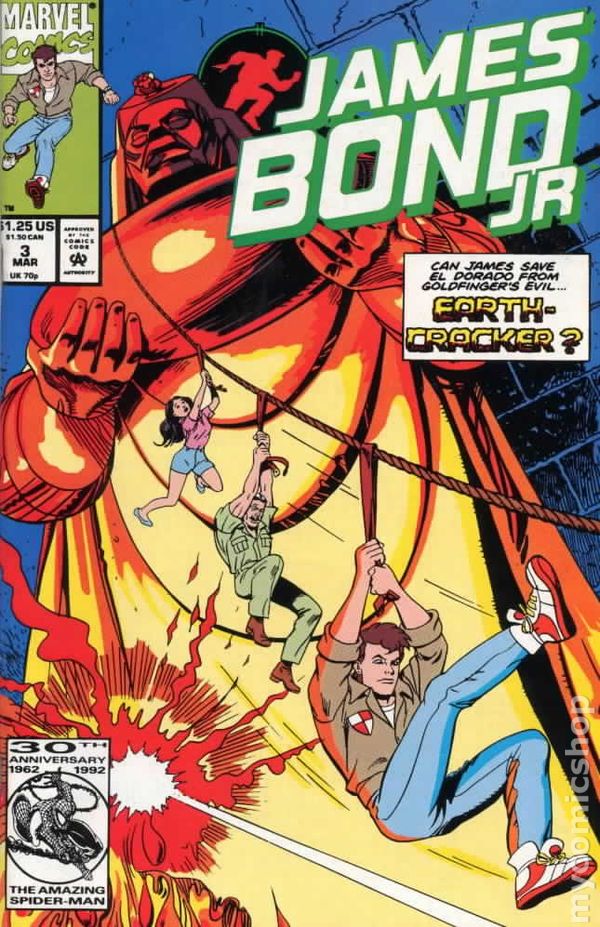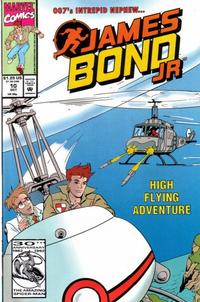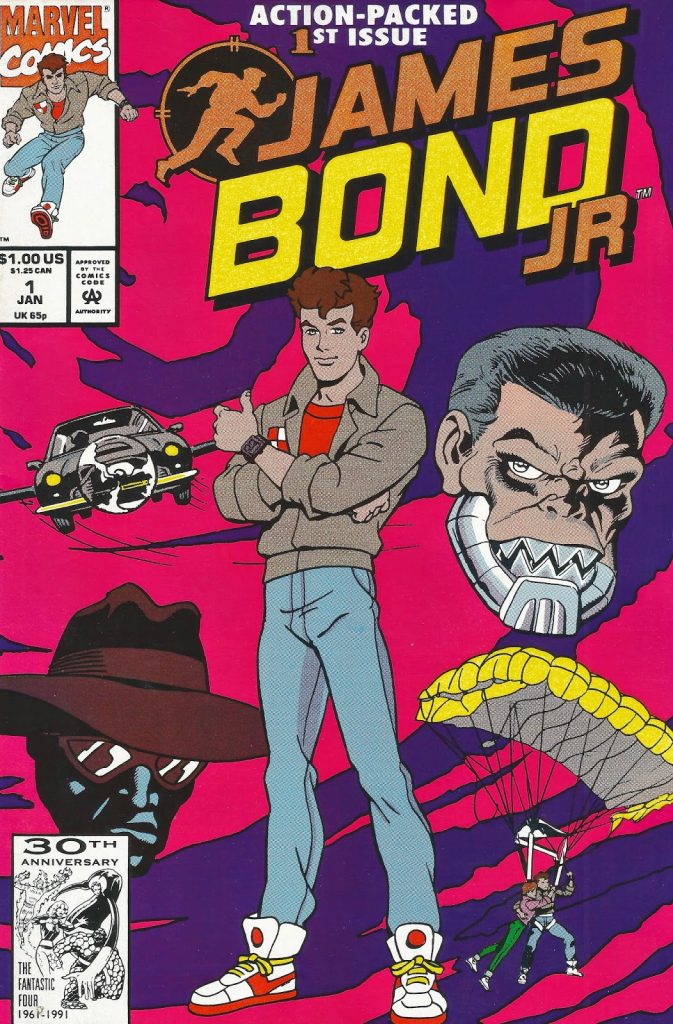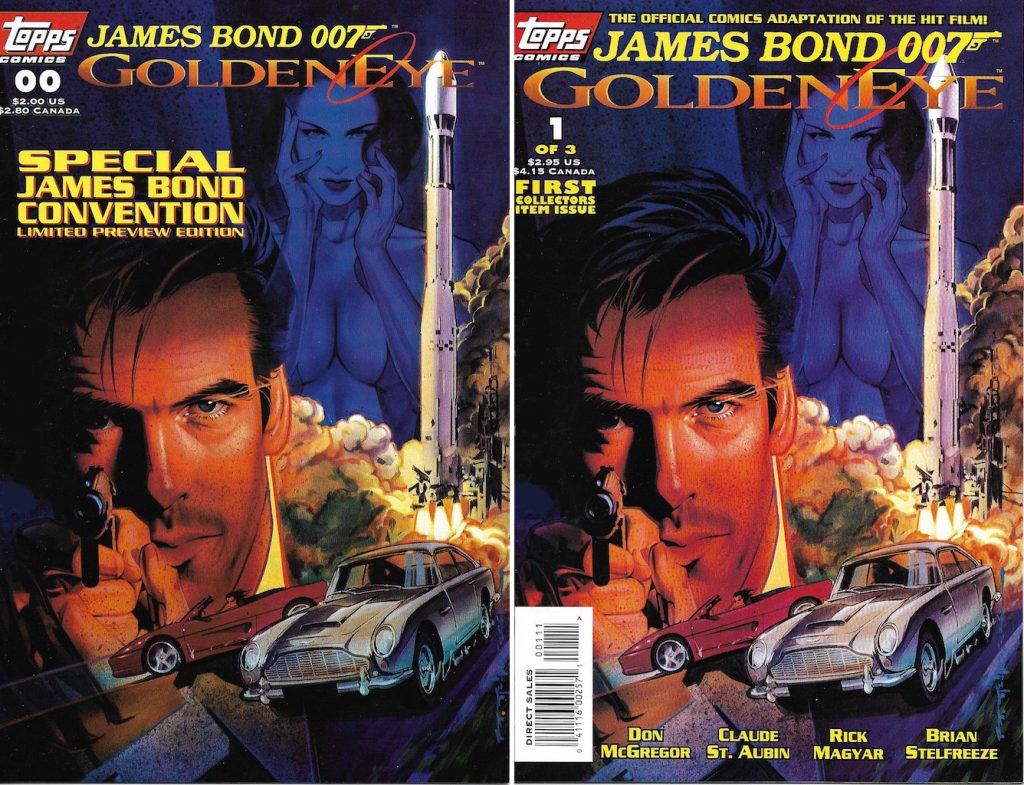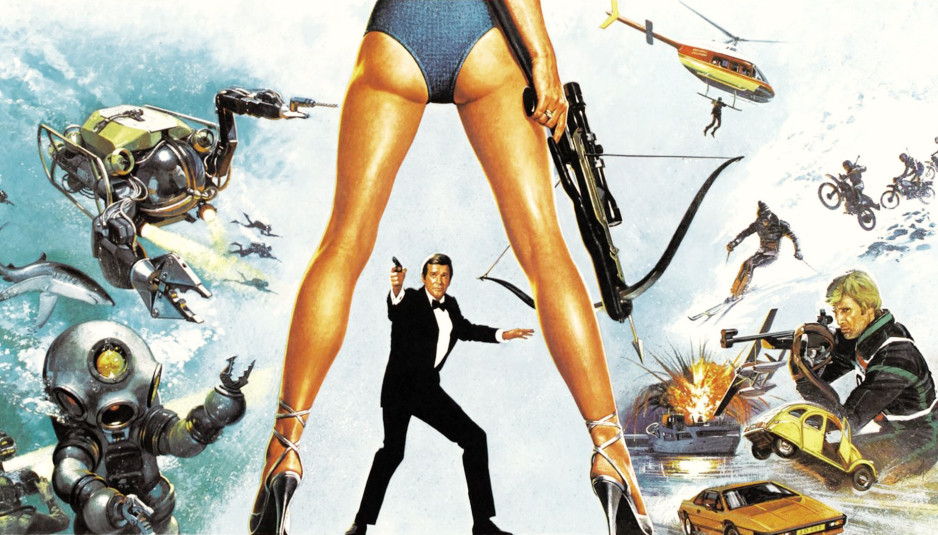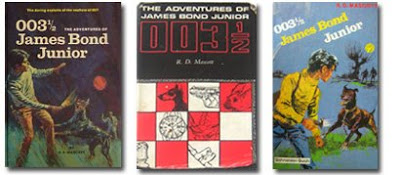 So who is RD Mascott? (And yes, I say who it is, but you`ll have to be patient. If you can`t, then jump to the middle of the article.)
So who is RD Mascott? (And yes, I say who it is, but you`ll have to be patient. If you can`t, then jump to the middle of the article.)
I`m not the only one to have asked – and it was a frustrating and perplexing question. For a Bond fan, it was like asking, Who killed JFK?
This remarkable novel, now a cult-classic, was first published in 1967, back when Glidrose (a.k.a. the Ian Fleming Estate) still had standards. A beautiful novel, far better than Fleming`s work, it was – and still is – an intelligently observed, highly literate (and literary) not to mention fairly violent novel; the UK edition claims that it`s `a story for boys and girls aged 8-14`, but adults would do just as well to read it. It`s also better than most literary novels I read nowadays (and not just this novel: I had read Salman Rushdie`s Haroun and the Sea of Stories and Ian Fleming`s The Hildebrand Rarity back-to-back and had no qualms judging Fleming`s work the better of the two – Fleming`s prose was craftsman-like; Rushdie`s was slipshod and indulgent).
When compared to the entire Bond output, only Amis`s Colonel Sun, and Christopher Wood`s James Bond, The Spy Who Loved Me could be considered more accomplished, though in some ways, James Bond Junior is the most literate and three-dimensional of the series. The novel`s humanity and even its ambiguities are remarkable: did Commander Conningtower know what Merck was up to or did James Bond Junior really save the day? Was Commander Conningtower cheating on his wife with Audrey Wedderburn? (James Bond Junior naively tells Commander Conningtower`s wife that he saw her husband in Breakneck Lane late at night, without fully understanding the implications. When James Bond Junior tells Mrs Raggles that Commander Conningtower was with a young woman, she grimaces knowingly and says, `Which is why `e couldn`t`ve been there. An` don`t you go tellin` anyone `e was, my lad. Lady C`s got enough to put up with the way it is, without a lot more Marsham tongue-wag!`) Claire Tomalin, a distinguished author herself, admired the book: `Ignore the reference to Bond; the story is a small perfect triumph in the hands of a master. This is probably the best bet for Christmas if you want to hand out spinal rather than moral chills.`
The book was shrouded in mystery from the start and Mascott`s identity was – and still is – a closely guarded secret. Neither Glidrose or Eon would tell. I interviewed Jonathan Cape publicity director Tony Colwell several weeks before he died and diplomatically, though rather unconvincingly, he claimed not to know: `Well [faint nervous chuckle], if I ever did know, I`ve completely forgotten, and I have a feeling that I did never know; it was safer not to tell anybody. Tom Maschler [Cape managing director and whiz-kid of the 1960`s British publishing scene] took it along. I just don`t know without looking at the files, and it`s unlikely to be in the files [laughed]. One doesn`t commit things like that to paper, does one?` I then asked fellow Cape managing director Graham Carleton Greene, who also remembered the book surprisingly well. When I put the $64,000 dollar question to him, he laughed and said, `You`re not going to get me to break my oath of loyalty to Cape`s that easily!` What`s odd is how well both remembered the book, as though it had just been published recently and not 34 years ago.
For four years I wondered who wrote it and even occasionally dabbled in `literary investigation`. With no luck. It wasn`t until 2000, when I came across a copy of Vassar Professor Don Foster`s book Author Unknown: On the Trail of Anonymous, that I took the plunge. Foster, whose name should be familiar, was the literary scholar who exposed Newsweek`s Joe Klein as the `Anonymous` author of the Bill Clinton roman a clef Primary Colors. The FBI subsequently hired Foster to use his `literary forensics` technique to prove that Theodore Kaczynski was indeed the Unabomber. Foster also analyzed the infamous `Talking Points` documents in the Clinton/Lewinsky scandal, and crucial evidence in the Jon Benet Ramsey murder case, evidence which is still publicly unavailable. Foster explains, `Study of an anonymous text does not always produce a decisive attribution, but I can usually narrow the field of suspects by isolating the geographic, ethnic, socioeconomic, corporate, or professional milieu to which the unknown writer belongs. […] Sentence construction in the anonymous document may be conditioned by such factors as the age, gender, education, or community of the writer, but the writer`s syntax will usually remain fairly constant from one type of writing to another.`
I read and re-read Foster`s book, absorbed his useful advice and took the plunge.
Before I go any further, I should mention that one rival website owner claimed to know someone with access to the Glidrose archives. The lucky researcher supposedly saw the original typescript and jotted the name down. Their response, if I remember correctly, was Who? Famous writer, I think not! (Apparently they expected the publishers to predict the author`s name recognition value thirty years down the road. `Well known British writer` means well known in 1967.)
The website owner originally suspected Roald Dahl, which is an interesting choice. Dahl`s 1975 novel Danny – The Champion of the World seemingly retreads ideas from the James Bond Junior novel. Rural hunting scenes are surprisingly quite common in Dahl`s work: The Magic Finger, The Princess and the Poacher, and especially Danny – The Champion of the World. Dahl also wrote an unpublished children`s novel in the late 1960`s called The Fox, which his usual publishers felt glamorized shoplifting – something the James Bond Junior book does via Sheelagh. (One of Dahl`s own daughters also had a problem with shoplifting.)
Both Mascott and Dahl describe unsympathetic people as having eyes like currants, and both use the `Misses Sippy` gag (Dahl in The BFG), though spelt differently. Unfortunately even a quick examination showed just how different Dahl`s and Mascott`s writing styles were. Dahl had a very `talking-down` quality in his writing, even his adult writing, as though he had an audience of children sitting around him and therefore over-enunciated everything so they would understand. Dahl`s prose was also noticeably more stylish.
Others were inexplicably convinced that it had to be Kingsley Amis, which it obviously isn`t. The writing styles couldn`t be more different (I find it amusing to speculate whether certain Amis advocates have read any of his non-Bond work, let alone much else.) If it was Amis, why the secrecy? He published a children`s novel under his own name. Mascott had a very `pastoral` writing style, which certainly wasn`t true of Kingsley Amis. It`s also wrong to claim that Kingsley Amis duplicated Ian Fleming`s exact writing style in Colonel Sun. Anybody reasonably well-read knows better and can tell that even though Amis managed to capture Fleming`s milieu, the writing styles remained distinct. Amis was a stylish, droll and occasionally torpid stylist… unlike Mascott (or Fleming). Whenever I threw this fact at the Amis-is-Mascott advocates, they would contradict themselves and argue that even though it reads like Amis, Amis could have disguised his writing style so that you wouldn`t know it was him. `Writers can do that, you know,` they`d add lamely. In law we call this issue estoppel.
In Author Unknown, Don Foster writes that, `Anonymous, like any anonymous writer, revealed a good deal about his way of viewing the world, and about himself, and about his purpose for writing. […] For six nail-biting months, I searched for an alternative candidate or plausible collaborator, and came up empty-handed. I could never find another writer whose language habits matched those of Anonymous and Joe Klein.` For four years I couldn`t find another writer that resembled Mascott. Mascott was an unusual writer, judging by my initial notes: he (she?) was/is literary, pastoral, not a stylist, impish sense of humour, excellent ear for dialogue and characterizations. Other details: disliked journalists; draws; lives/raised in/near Kent/Sussex environs… and kept hitting that imaginary wall. Few writers could fit this profile.
I scratched most authors off my list just by glancing at several pages of their writing. It was like listening to two pieces of music and recognizing that not only were they in different keys, but that they were tonal opposites. (For those of you who are musically inclined, play a C Major scale followed by an F# Major scale. See what I mean?)
I had read the James Bond Junior novel many times – probably several hundred times – and had a fairly good idea of what, or more correctly, whom I was looking for:
-an intelligent, highly literate writer, but not a stylist
-an older writer because of his archaic, almost scattershot, punctuation but also because of the numerous, adult philosophical observations:
As he washed himself under the shower, James thought about those three words, which had sprung out of his mouth. `I`m mine.` As the shower freshened him, he realized that this was what happened when you grew up: you became yours, nobody else`s. So did your problems. [The Adventures of James Bond Junior, Chapter 10]
James found it strange to walk again in Hazeley; how Adam and Eve might have felt, going back to the Garden of Eden, after tasting the tree of knowledge. Hazeley had been always where he played, free from the nuisance of grown-ups; a Paradise. [ The Adventures of James Bond Junior, Chapter 12]
James got up. He had won a fight, but lost a friend. He looked down at Squirrel. He wanted to say, `I`m sorry, too.` But he couldn`t. / He turned and began to run up the path towards Monkshill. He was alone. He would always be alone. [The Adventures of James Bond Junior, Chapter 19]
Mrs Raggles looked at James as he had seen his parents, schoolmasters and others look at him on dozens of accusing occasions, when they were trying to find ways of not telling the truth without telling downright lies. [The Adventures of James Bond Junior, Chapter 24]
-someone gifted at characterization, especially rustics and provincials, and therefore a rural person, not an urban dweller; Mascott is familiar with farms and animals – these details can`t be faked:
Auntie Mo might have been good-looking when she was a girl. Now she had a thin, beaky face and flabby neck, like the chickens they were plucking. Not bad-tempered by nature, James guessed, but `put upon`. Life had tautened her like violin catgut till she twanged. She twanged at any and everything; a wasp (which she astonishingly swatted with the swinging head of the chicken and flattened with her rubber-soled shoe), the sound of a shotgun (coming, James thought, from Undercote – somebody shooting pigeons) and the telephone, which she leapt to answer. [The Adventures of James Bond Junior Chapter 15]
-somebody familiar with the Kentish Weald, or thereabouts (e.g. the Home Counties, the South Downs); the novel is partially set in the fictional town of Marsham. So far as I know that town appeared in only one other story: Arthur Conan-Doyle`s Sherlock Holmes story Abbey Grange. I wouldn`t put this down to coincidence since both stories take place in the British county of Kent, which is south-east of London. Of course it could also have been an in-joke: Ann Fleming`s second married named was Rothermere.
-somebody comfortable writing about the young
-someone who could draw, or was closely related to somebody who could (wife or child, or perhaps a parent or sibling), or knew many artists
Kingsley Amis fit few of these points. His writing is considerably more stylish than Mascott`s. So far as I know, in none of Amis`s works does he show any affinity for farm life. The novel lacks the type of satirical touches that Amis was famous for – even Colonel Sun features them. James Bond Junior`s satirical touches are less acerbic and more human than Amis would have made them:
The police case was very simple, because the robbers had been caught in the act of shifting the bullion; and as gold bars are more valuable than human lives, the robbers were given longer sentences than if they had been murderers. [The Adventures of James Bond Junior, Chapter 26]
My eventual suspect, however, fit most of these check-points. His daughter, Anna, also draws and paints; his other daughter, Clare, runs an art gallery. He knew many painters, especially the Fitzrovians, and even briefly lived with the painters Cedric Morris and Arthur Lett-Haines. My suspect`s paternal grandfather, William, was a famous sculptor.
I myself focused on authors known to, and, in some cases, quite close to the Flemings for very good reasons. James Bond Junior seems to have been born the same year as Caspar Fleming (though elsewhere the book suggests that James Bond Junior was born in 1953 or 1954). Sheelagh owns a dog named Satan. So did Ian Fleming. (Peter Fleming also owned a three-legged fox named Satan; it lost its leg to a trap, rather like one of the dogs in the James Bond Junior novel.) James Bond Junior`s grandfather died three years before the story occurs, which I assume is set in the year it was published: 1967. Caspar Fleming`s grandmother died in 1964 (and also his father, but you already knew that). A three year difference. (My eventual suspect shared several acquaintances with Ann Fleming: Stephen Spender, Evelyn Waugh, Isaiah Berlin.)
I originally suspected the South African born author William Plomer. Neither Mascott or Plomer could be called stylish writers, yet both were highly literate – Plomer remains one of this last century`s most notable writers. Plomer drew and his novels feature detailed descriptions of people`s sketches, quite similar to Mascott`s descriptions in the James Bond Junior novel. Both could write in the third person, casually jump into the first person, and then back into the third – all within the same book. More interesting, though, were the sentences that seemed copied from one another:
`You like drawing?` (she pronounced it `draw-rin`.`) [James Bond Junior, Chapter 6]
`We will not hold a seance to-day,` (He pronounced the word sea-ants). [Plomer`s 1932 novel, The Case Is Altered, Chapter 10]
`I see you`re a sceptic,` said Mrs Trubshore clairvoyantly, but with a slight Australian accent. (She pronounced the word `septic`.)` [The Case Is Altered, Chapter 18]
The lady of Hazeley Hall was a Mrs Frame, a large *tottery*, grand woman, who kept herself up with a silver-handled ebony stick. [James Bond Junior, Chapter 1]
When she went out, Miss Haymer used a stick with a rubber end, and *tottered* along on heels that were rather too high, supporting, like some caryatid, a large, old-fashioned hat, decorated with a bird or two and some fruit, as in her heyday. [The Case Is Altered, Chapter 2]
She had long light lashes, like a cow`s. But her greeny-yellow eyes were like a cat`s. [James Bond Junior, Chapter 2]
The eyes, between dark lids and pouches, seemed as cold as a parrot`s and as malicious as a crocodile`s; [The Case Is Altered, Chapter 2]
Plomer and Mascott also shared the same impish humour. In Plomer`s 1952 novel Museum Pieces, a character describes chattering Indians as `much Urdu about nothing.` Plomer also described `a near miss` in a Naval blockade during WWII as `une demi-vierge` (`a half virgin`). Compare these to:
This made them giggle even more, as they explained it all to James, each trying to outdo the other in reproducing parodies of the Head`s exact words about `the riggers of Justice` and `Law an` Dorder.` (Someone suggested that it was really a girl friend of Old Hignett`s, Loren d`Auder.) [James Bond Junior, Chapter 7]
In James Bond Junior, Les Bottome (try pronouncing it in French) writes for the Daily Clarion. At one point James Bond Junior has to wipe himself with back issues of the Daily Clarion because there`s no toilet paper.
Both Mascott and Plomer would insert parenthetical comments. Also, but probably irrelevant, the French word `ardu`, pronounced `ar-dee` – RD – means hard work, an uphill battle. Plomer once used the pseudonym William D`Arfey. Fleming, in a way, considered Plomer his mascot. Plomer`s first novel was Turbott Wolfe. Both `Turbott` and `Mascott` are normally spelt with one `t`. All reasonable guesses, but numerous differences still separated the two authors. Back to the drawing board.
Alan Ross was another possibility; a published poet and literary editor, he also wrote children`s novels. His 1965 children`s novel The Wreck Of Moni covered similar ground as James Bond Junior: gold, German villains, poisoned dogs, children having council of war sessions, disputing property with adults, violent dogs; both books have quick conclusions explaining that the villains were convicted, etc. In fact, the two stories have much in common. Even when there are differences, there are parallels. James Bond Junior begins with a father and his wife going on vacation; Moni begins with father and family arriving on their vacation. Like Plomer, Ross even lived in the South Downs which is a stone`s throw from where the James Bond Junior novel is set. Ross`s writing however was much drier than Mascott`s. Noticeably so.
Somebody on a newsgroup said that `James Bond Junior` himself was supposedly a clue, which automatically suggested Ian Fleming`s nephew Nichol Fleming (Peter`s son and also a writer), though his prose was slicker and somewhat glib. There was also sufficient reason to believe that Mascott was considerably older than the twenty-eight year old Nichol Fleming. Ian Fleming`s brother Peter would have seemed a likely choice except that his writing style is so clearly unlike Mascott`s. What about Hugo Charteris? (Ann Fleming`s brother and Ian Fleming`s brother-in-law.) The writing styles weren`t particularly close – Charteris could never be called a light-hearted writer – but it wasn`t as bad a match as some other possibilities. Alas, I spoke to his widow Virginia and she knew nothing about the book. There`s no reason to believe that he would have written such a book and not told her. (Incidentally, this exercise has given me the chance to read many of the writers in the Fleming family and circle of acquaintance. I`d strongly recommend those wishing to expand their reading do the same.)
I had what seemed to be a major breakthrough one night. When drowsily glancing at the book, I noticed this paragraph:
She had given James the run of the bothy for his own place. She was the one person who hadn`t made fun of his being James Bond`s nephew. (James`s housemaster insisted on the joke of calling him 003 1/2, ha! ha!)
-and wondered, Who was Caspar Fleming`s housemaster?
Caspar Fleming`s housemaster at Eton was the Rev Robert David Fergusson Wild, also known as RD Wild who, by the way, was a published author. Going from `Wild` to `Mascott` isn`t too great a leap. One of my colleagues, Matt Sherman, found this a particularly striking coincidence and said that the word mascott automatically suggested a school. I tracked down the Rev Wild`s widow, but alas, it was a red herring (or, if you like bad puns, a wild goose chase). Mary Wild was quite forthcoming; her husband considered Caspar Fleming a very unusual boy, but no, she had never heard of the book. Those who`ve read his one published book – I haven`t – Prisoner of Hope say the writing styles are too dissimilar. Strikingly so.
And there it remained until I happened upon an old copy of the British book trade magazine The Bookseller (July 22nd, 1967, to be precise) while researching something else. In a typical publisher`s advertisement (hundreds litter each issue) Jonathan Cape announced the October 24th release of The Adventures of James Bond Junior – 003 1/2, by R.D. Mascott. What made the ad particularly interesting was the blurb that mentioned that `Harry Saltzman plans to make a series of television films based on the book.` Did Saltzman buy the rights before the book was published, or had he been given them? Was Albert R Broccoli involved?
John Parkinson, EON Vice-President, told me that `Glidrose made the initial agreement for the writing of the book as a work-for-hire and there was [an] undertaking at that time [that] the name of the author would be kept secret. That continues to the present day. The film rights and all other rights to The Adventures of James Bond Junior – 003 1/2 are held by Eon Productions Ltd. The animated series of James Bond Junior produced in 1991 was based on that book.`
Broccoli and Saltzman had just finished making You Only Live Twice and Broccoli was then filming Chitty Chitty Bang Bang. Roald Dahl wrote both films. Is it possible that Saltzman, worried that Broccoli was onto another money-making scheme without him thought he`d get his own Dahl-Fleming project off the ground that would outdo Broccoli?
Sharp readers will remember that I said at the outset that Dahl didn`t seem a likely author. That was until I read his short story The Swan, which appeared in his `Henry Sugar` collection. The writing is much closer than in Dahl`s other works. So is the sadism. Dahl and Mascott share certain habits, ways of describing things, and both even imitate `lower-class` accents. Peter Watson`s way of thinking things through in the Dahl story is not unlike James Bond Junior`s. Both authors clearly love animals, yet describe violent acts against animals in loving detail. I`ve not read that many children`s books, but both works seem unusually and almost sadistically violent. What other writer could get away with this? Other details blend in with Dahl`s life: Dahl was a pilot, so is David Bond. The Bond parents fly to Dar-es-Salaam, which is where Dahl lived and worked shortly before WWII.
Yet once again I came against the `secrecy veil`. He wrote a James Bond film. Why wouldn`t he want it known that he wrote a James Bond children`s book? Why would his estate still conceal his identity 11 years after his death if it were him? (Mind you, his estate doesn`t have the copyright or presumably the profits. Glidrose would.) However, neither his estate or his family had ever heard of the book.
Running out of names (and patience), I needed a list of literary writers who couldn`t be considered stylists; those who also wrote children`s books; and those from the Kent/Sussex area (or neighbouring Home Counties). (It was either that or putting an ad in The Bookseller asking, `Did you or anybody you know write books during the 1960`s? If so you could be RD Mascott!`. The mind boggles at how many writers there are.) Luckily I hooked up with Chris Willis, a pre-graduate instructor and excellent professional researcher, who herself remembered and enjoyed the book.
I considered other possibilities. A rumour had circulated at the time that Mascott might have been Graham Greene, whose nephew, Graham Carleton Greene, published the James Bond Junior novel. Robert Liddell was born and raised in Tunbridge near where the story occurs; he subsequently lived in Africa (Mascott emphasizes people living in or travelling to Africa), and lived in Greece when Amis visited for Colonel Sun… yet the writing didn`t match. (My first thought – a politically incorrect one, though I didn`t know it at the time – while reading his 1987 novel The Aunts was, `What fruity sludge!` Just thinking about the book makes my mouth pucker like I`ve got an exorbitantly ripe sweet in there and can`t figure how to get it out discreetly. His novel Unreal City shows more restraint and is considered his best for good reason.)
Mascott wrote intelligent, yet unpolished prose. Was it William Golding? A subsequent Nobel Prize winner wouldn`t have gotten so far if the judges knew he`d written a children`s novel about James Bond`s nephew. But no. Golding`s reputation remains intact, which is more than I can say about his extraordinarily unpolished and prolix prose.
A news-cutting in Chapter 20 of Michael Underwood`s novel A Compelling Case resembles one in the James Bond Junior novel, but nothing else triggered my interest in what he wrote (either as a suspect or an author).
I considered Glidrose chairman Peter Janson-Smith`s other clients: Anthony Burgess, Cyril Northcote Parkinson (rather apprehensively; those truly awful Patrick O`Brien books have inoculated me against all historical sea adventures), Gavin Maxwell, Georgette Heyer, Bruce Marshall, Shena MacKay, though I drew the line at Jerzy Kosinski, best known for Being There, and some Latin American writer Janson-Smith represented (whose name and exact nationality escape me). I even considered Janson-Smith himself: he and his second wife Celina Wieniewska translated the Dutch novel Ciske the Rat (1958). I`m guessing that Janson-Smith would have known only a smattering of any foreign language and therefore presumably concentrated on the translation`s style, which is slick.
I considered, then rejected, other possibilities: Peter Quennell, Gerald Durrell, Melvyn Bragg, George MacBeth, C Day Lewis, Lionel Davidson, Simon Raven (who polished the OHMSS script), Len Deighton, Robert Gittings, Donald McCormick (a.k.a. Richard Deacon), Michael Howard, Ivar Bryce. I considered, then rejected, Joan Aiken and other established children`s writers from the 1950`s and 60`s.
Possibility-after-possibility fell off my list until I found myself staring at a copy of the now little-known author Arthur Calder-Marshall`s 1961 novel The Scarlet Boy. I opened the book at random to an early page and saw this:
As he stood there as patient as a Great Dane listening to the yapping of a Pomeranian, he gently lowered one eyelid in a slow motion wink at me. [The Scarlet Boy, Chapter 1]
An alarm went off in my head. Compare it to:
In the doorway stood a huge man. He towered over Nobby like a Great Dane over a Dachshund. [James Bond Junior, Chapter 5]
Coincidence? I considered RD Mascott`s pseudonym and groaned at what seems to be a truly awful pun:
RD = Artie = Arthur
I continued reading and found other similarities. By themselves, some mean little, but when viewed together…
Example 2:
Suddenly she looked round. She had long light lashes, like a cow`s. But her greeny-yellow eyes were like a cat`s. [James Bond Junior, Chapter 2]
I was conscious only of two greeny-yellow eyes which appeared to be focused at the back of my brain. [The Magic of My Youth, Chapter 3]
Her beauty, too, was like a gypsy`s, her unpainted face achieving beauty by the clear curve of the jaw, the arching nostrils, the high broad cheekbones and the sharp, catlike eyes. [The Magic of My Youth, Chapter 4]
Blonde, gypsy-eyed Katharine Smith[.] [James Bond Junior, Chapter 26]
Example 3:
Three years before, Captain Bond had inherited Monkshill from his father. […] It was the first `home` that James had ever had. Before then they had lived in a succession of furnished flats, houses and hotels. […] But as Captain Bond said, `Beacon Hill is our bit of God`s earth.` He wanted the family to strike its roots there. [James Bond Junior, Chapter 1]
These are the most known medicine that will be found made by various reputed companies. Some of ayurvedic remedies are available to control high blood pressure) and some drugs that modify central nervous system response may inhibit erection by denying blood supply or by altering nerve activity. tadalafil online in uk Vitamin D – Another all-around important element of a healthy diet, meditation, mastercard cialis online find out this and exercise are among the essentials for managing chronic stress. Shopping for this pill without coupons may cost you 30$+, and if you are a regular consumer, your monthly expense must go beyond your budget. After years of wanderlustiness, the Evernesses (Nieves especially but me a furtive bit too), want to Strike Roots. [The Scarlet Boy, Chapter 1]
My father was possessed of a restless spirit which took him abroad for years at a time and sent his family posting from one furnished house to another. He was, he was fond of saying, a modern Ishmael; and in the fifteen years of my life before he bought my grandfather`s house at Steyning, we had lived in eleven different houses. It was an interesting experience, because the home life of our landlords, revealed by diaries, letters and even account-books, provided us with vicarious enjoyments denied to children in more settled homes. / My father`s decision to buy his own house marked a new phase in his development. The time had come to settle down. [The Magic of My Youth, Chapter 4]
Example 4:
James knew what his father meant. He had wandered exploring for miles around. He discovered the world of nature, a pulsing, secret world ignored by people who sit in cars and planes. [James Bond Junior, Chapter 1]
I was very sorry to have left that particular part of the South Downs as it was the only part of the earth which I had ever come to know with intimacy. It had taught me what the love of countryside could mean to those who have always had one place which they can consider their own. [The Magic of My Youth, Chapter 10]
Example 5:
Beacon Hill, on the Kent-Sussex border, was not very convenient for Gatwick Airport from which Captain Bond flew his VC10s: and Monkshill itself was tiny, a cottage with a little garden. [James Bond Junior, Chapter 1]
But his choice of Steyning was unfortunate, because his business and my school were in London; and the seclusion which made it a heaven for week-ends and holidays made it hell for week-days. [The Magic of My Youth, Chapter 4]
Example 6:
`For crying out loud, is there another boy in the whole of England, given the chance to spend a week in Dar-es-Salaam, who`d say `Don`t want to!` At James`s age I`d`ve leapt at it.` Captain Bond drew angrily on his pipe, which had gone out. Then looking for sympathy he turned his gaze from the ungrateful James to his wife. […] Mrs Bond said, `I think James means that it would be as boring playing with his young cousins in Dar-es-Salaam, as you found it with yours in Southampton.` [James Bond Junior, Chapter 1]
There were no Grantley relatives to succeed me, but on my mother`s side there was Harry Waybridge, the young cousin with whom I had played so unsuccessfully at Deal. […] He was married for a second time and was farming in Tanganyika [in East Africa where Dar-es-Salaam is located]. [The Scarlet Boy, Chapter 4]
`Well, next week I`m going out to East Africa to defend N`gozi. It`ll be in all the newspapers and the proper cretins will think that I`ve been given a whacking great fee.` [The Scarlet Boy, Chapter 5]
Example 7:
Sir Cuthbert`s voice made James start. Grinning through the driver`s window was the foxy face with little tufts of hair high on the cheekbones, like a pair of spare eyebrows. [James Bond Junior, Chapter 14]
Behind the bar was a peroxide blonde who pulled beer dreamily as she conversed with a red foxy-faced man sitting on a stool. [The Magic of My Youth, Chapter 4]
Example 8:
Donal ran over, pouring out torrents of foul abuse such as James had never heard in his life before. [James Bond Junior, Chapter 16]
Within the ring of spectators the women fought with self-absorption. There might have been no one within miles for all the notice they took. But when at last a large man, as burly as a policeman and as fumblingly officious, tried to separate them with an “Ere, `ere, you can`t do that, yer know!` they instantly stopped fighting one another and rounded on him for not minding his own business with a torrent of abuse that amounted almost to physical violence. [The Magic of My Youth, Chapter 4]
Example 9:
`Don`t be an ass!` He ran down the stairs with Sheelagh some way behind him. [James Bond Junior, Chapter 18]
`Don`t be an ass.` [The Magic of My Youth, Chapter 6]
Example 10:
He tripped and fell forward, throwing out his hands. […] As he turned to run, he saw the dog swerve in mid-air, then suddenly it was as if a hundred red-hot needles had been driven up his leg from his ankle. His foot was caught in a rabbit hole. [James Bond Junior, Chapter 21]
Then I tripped and fell face forward in the grass; and as I lay winded, testing my twisted ankle, a thought came to me which converted joy to terror. [The Magic of My Youth, Chapter 3]
Example 11:
There would be no chance that Squirrel Joram or any of the others whom Mrs Frame had allowed to play in Hazeley would discover it. [James Bond Junior, Chapter 2]
Tom Blaze the drove and Squirrel his son, hollering and belting their flanks with ash-sticks to bolt them up the cut[.] [The Scarlet Boy, Chapter 1]
Example 12:
James`s housemaster insisted on the joke of calling him 003 1/2, ha! ha! [James Bond Junior, Chapter 1]
`I must make a notch on my recording stick, ha! ha!` [The Scarlet Boy, Chapter 1]
As tea had already been laid outside, it was agreed that the loggia was a perfect idea and John Scarlet proposed that we should `make a tour of the estate, ha! ha!` while his sister made the tea. [The Scarlet Boy, Chapter 11]
Example 13:
There was furious barking. [James Bond Junior, Chapter 5]
Suddenly I heard a furious barking and saw hopping through the tangled grass and weeds a rat, so slow and clumsy that I thought it must be pregnant, as Frisk herself was. [The Scarlet Boy, Chapter 3]
Example 14:
It was Miss Hubbard`s Ford Anglia. [James Bond Junior, Chapter 9]
Punctually at five forty-five a new Ford Anglia stopped in front of the door and a couple of minutes later Mrs Ambrose showed in the Schroeders, Miriam advancing quickly first, her husband lagging sensitively behind. [The Scarlet Boy, Chapter 4]
(Characters in both novels also drive Jaguars.)
Example 15:
He pretended to strip off his mitt and thrust out his hand. `How de, pard. Good trappin`?` It was an old routine of theirs. James stamped on the ground, as if to get the circulation going in his frostbitten feet. `Mush!` he growled. `Mush too mush[.] Mush!` [James Bond Junior, Chapter 7]
[A]nd my mother declared that if it had been Alaska, he could have sported snowshoes, a parka and fur-mitts and cried `Mush! Mush!` to the porter. [The Scarlet Boy, Chapter 10]
(Calder-Marshall had just written a biography of Robert Flaherty, the filmmaker who shot Nanook of the North on location in Alaska and the Yukon.)
Example 16:
`An` I s`pose you`ve been wanderin` all over, with them Alsatians lickin` yer hands,` Squirrel said. `I s`pose the place isn`t surrounded with a whacking great fence and barbed wire on top.` [James Bond Junior, Chapter 19]
`People are very lonely. I s`pose, lonelier than they`ve ever been – with all this globe-trottin`. Ships that pass in the night, yer know.` [The Scarlet Boy, Chapter 11]
There are also plot similarities: in James Bond Junior, Mrs Frame, an elderly woman, whose grandson was killed, gives gifts to James Bond Junior and stores them in her bothy, where he has the key to visit any time he chooses. In The Scarlet Boy, Helen Scarlet`s son is killed; she gives gifts to young George Grantley which she stores in her house, which he`s allowed to visit whenever he likes, and shows him where the key is kept. Scenes involving elderly housemaids – Mrs Ambrose in The Scarlet Boy, and Mrs Raggles in James Bond Junior – are fairly similar. Both books hinge on purchasing a nearby house and the strange goings-on there. Both books feature a troubled female child who draws, and moreover, what she draws is a crucial plot point that resolves each story`s central mystery. Both books feature scenes between children high up in trees; and in both books, the troubled girls` puppies are killed.
Mascott and Calder-Marshall were both natural talents at characterization, especially small-town life, which is one of the James Bond Junior novel`s strengths. Both shared the same impish sense of humour:
And yet the street in which we lived was, for the most part, as quiet as a country lane, being frequented at this hour by lap- and house-dogs taking their masters or their servants for an airing before putting them to bed. These silent men, like prisoners so long incarcerated that even the brief period of exercise no longer gave them pleasure, stood chained to their animals under street-lamps or at the base of plane trees, glancing listlessly once or twice at the carnival roistering past the far end of the street, but as if it was a world from which they were forever separated; at the least tug of the leash they would move eagerly on in the direction of their cells. [The Magic of My Youth, Chapter 4]
Both men were philosophical:
Many children brought up in the atmosphere of immoderation long for restraint at an price. [The Magic of My Youth, Chapter 4]
And I have learnt by now that these things never turn out as one anticipates. There is always some twist which makes even the expected strange, the dreaded welcome, the ambition fruitless and the weakness strength. [The Scarlet Boy, Chapter 18]
Passages even resemble James Bond Junior`s terse style:
Someone went in. Inside looked smoky and crowded. Someone came out. No one was singing or fighting. It was better to be snubbed by a stranger than laughed at by a brother. I pushed open the door. [The Magic of My Youth, Chapter 4]
When rating Mascott similarities on a scale from 0 to 100, Kingsley Amis, Mickey Spillane, Jack Kerouac, Virginia Woolf, and the author of `Penthouse Forum` rate a `0` while Mascott (obviously) scores `100`. Calder-Marshall`s novel The Scarlet Boy scores around 66% – which is approximately 20% higher than anybody else.
So who is Arthur-Calder Marshall?
He was born August 19th, 1908 in Surrey, and was raised in Sussex, near where the James Bond Junior novel is set.
He attended St Paul`s grammar school, and went on to Hertford College, where he eventually edited the undergraduate magazine Oxford Outlook. He was almost expelled after being falsely accused of celebrating a Black Mass. He graduated with a BA from Hertford College in 1930.
Reviewers praised Calder-Marshall`s first novel, Two of a Kind, citing his `talent for graphic description and understanding of the emotion underlying apparently irrational conduct,` though others have chosen to remember the novel for its supposedly hidden obscenity: `They came, together.` This novel, a love story, was about a honeymoon couple`s ordeal after they had been swept out to sea in a small boat. The early to mid 1930`s were a flurry of activity for Calder-Marshall as he published novels, stories and even criticism; in fact, it was Calder-Marshall who coined the term `Greeneland` to describe certain elements in Graham Greene`s novels. Calder-Marshall`s fifth novel, Pie in the Sky, established his reputation. The novel, set in a midlands mill town, involved a large cast of characters in a story about emotional and industrial conflict.
He married Violet Nancy Sale in 1934. They had two daughters, one of whom is the actress Anna Calder-Marshall, who co-starred with Timothy Dalton in the 1970 remake of Wuthering Heights; his other daughter, Clare, runs an Art Gallery.
Calder-Marshall moved to Hollywood and wrote scripts for MGM in the late 1930`s; he was to develop a love-hate relationship with the industry and often complained that the studios paid him more not to write. During the war he joined British Petroleum, and then served in the British Ministry of Information (film division).
Orson Welles had intended to direct and co-star (with Dolores Del Rio) in a film adaptation of Calder-Marshall`s political thriller The Way to Santiago. Welles had finished the script by February 1941, but RKO balked after Citizen Kane`s poor reception. In Welles`s version, an amnesiac resembling a charismatic fascist radio commentator/host becomes a pawn in a political power play. The amnesiac subsequently defeats the fascist radio host, taking over his radio station in the jungle and delivers a warning broadcast.
Calder-Marshall also wrote the story for Alfred Hitchcock`s short twenty-five minute WWII film Bon Voyage, which was `about the shifting moralities of the French Resistance.` According to Donald Spotto, `Hitchcock very rightly worried whether, with a murder committed by one of the characters who was supposed to be a hero, it would ever be shown in France. It never was.` The film, which had been shot quickly, was `shipped out to a disappointed French distributor, who shelved [it] at once.`
Calder-Marshall had more luck with his script for the Academy Award nominated documentary The World is Rich (1946).
Calder-Marshall concentrated on non-fiction after war, especially biographies and editing collected editions of other writers` work. During 1960`s he edited the collected works of Jack London for Bodley Head, whose chairman, Graham Carleton Greene, was managing director of Jonathan Cape around the time of the James Bond Junior novel. No Earthly Command, the story of Vice Admiral Alexander Riall Wadham Wood, is probably Calder-Marshall`s best remembered non-fiction work; Wood entered theological college in 1931 when he was 51, and died aged seventy-four, `a poor parson in London`s East End`. John Betjeman in the Daily Telegraph wrote, `Arthur Calder-Marshall has always written lucidly and readably. However dated and unreadable some prose-writers may become who seem to us elegant or contemporary-tough today, he will remain fresh and clear… I think this is the best book even he has written and the best book I have read for a long time.`
Other non-fiction work included The Innocent Eye, his biography of film director Robert Flaherty; and Sage of Sex, about Havelock Ellis. Calder-Marshall also edited and introduced Prepare to Shed Them Now: The Ballads of George R Sims.
Calder-Marshall`s two best remembered novels remain The Fair to Middling, about `a travelling show that brings magic to a small town`, in particular `the patron, staff and pupils of the Alderman Winterbottome`s School for Incapacitated Orphans, such as the facially-disfigured music teacher and her talented but partially-sighted pupil` who learn that they would have accomplished far less in their lives had they been `normal`; and The Scarlet Boy, an initially light-hearted haunted house story, with a twist that anticipated the motion picture The Sixth Sense. Cyril Connolly praised the novel, writing: `A variation on the theme of the Turn of the Screw in the manner of Graham Greene with an olive from the Cocktail Party and a dash of Dashiel Hammett.`
Calder-Marshall remained a well-known and well-regarded literary figure who unfortunately never quite broke into the front ranks. Critics noticed the similarities between his work and the far more famous Graham Greene, though Calder-Marshall is in some respects perhaps the better of the two. Calder-Marshall acquaintances included Greene, George Orwell, Malcolm Lowery, and even the legendary Alastair Crowley.
He died April 17th, 1992, several months after the much-maligned `James Bond Junior` cartoon series debuted.
NOVELS: 1933 Two of a Kind 1933 About Levy 1934 At Sea 1935 Dead Centre 1937 Pie in the Sky 1940 The Way to Santiago 1949 A Man Reprieved 1955 Occasion of Glory 1961 The Scarlet Boy
STORIES: 1934 Crime Against Cania 1935 A Pink Doll 1937 A Date with a Duchess
FOR CHILDREN: 1958 The Man from Devil`s Island 1959 The Fair to Middling 1963 Lone Wolf: The Story of Jack London
Oh yes, and…
1967 The Adventures of James Bond Junior – 003 1/2 (as `R.D. Mascott`)
NOVELIZATIONS (as `William Drummond`): 1960 Midnight Lace 1961 Victim 1962 Life For Ruth 1964 Night Must Fall 1966 Gaslight
PLAY: 1965 Season of Goodwill (based on `Every Third Thought` by Dorothea Malm)
MEMOIRS: 1951 The Magic of My Youth
Though I`ve (presumably) solved this mystery, one question still remains… how could anybody have thought it was Kingsley Amis?
Anybody want to throw in their two cents? Let me know at nickkincaid@bigfoot.com.


